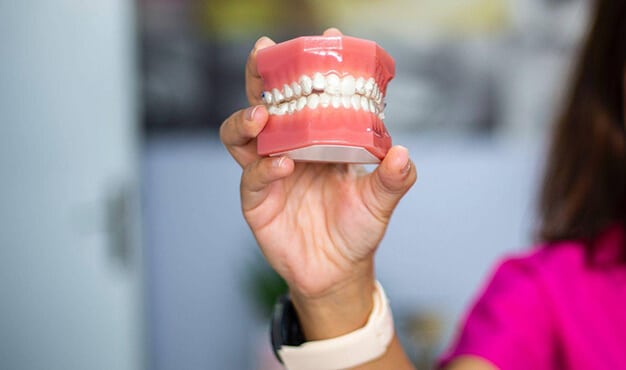Bruxism Treatment: Everything You Need To Know
What is Bruxism?
Bruxism refers to the involuntary grinding, clenching, and gnashing of teeth. It occurs both during the waking hours and while sleeping. Have you ever noticed yourself grinding your teeth without a reason? Say, when you are angry or anxious or simply because it has become a habit.
If yes, then it is time to seek treatment because bruxism is harmful to teeth. It puts extra strain on teeth, flattening or chipping them.
Contact us today for an appointment!
Causes of Bruxism
The causes of bruxism are unclear, and healthcare providers have failed to pinpoint one reason that might cause it. It is often attributed to anxiety, anger, and excitement, but a medical reason is not available as to why some people grind or clench their teeth.
symptoms
Symptoms of Bruxism
Usually, symptoms of teeth grinding aren’t always visible. We advise our patients that they ask their partners to monitor their sleeping habits and also bring them in, as the data observed by a third person is more accurate.
The symptoms of bruxism are often noticed when you start experiencing problems. Some of the symptoms are mentioned below.
- Very loud clenching or grinding of teeth, both during waking hours or sleep.
- Fractured, loose, or chipped teeth. When you grind your teeth ferociously, they ultimately crack.
- A tight jaw which often hurts when you open it all the way.
- Sensitivity in teeth.
- Worn down teeth enamel.
- Headache in temples, which isn’t too severe.
- Sleep disruption
- Jaw, ear, and neck pain.
So, do you have these symptoms? Visit us at Peace of Mind Dental Studio as soon as possible.

Distraction Methods – Therapeutic interventions – Pain management
Diagnosis of Bruxism
In other cases, your dentist shall discover the signs of bruxism during your half-yearly dental examination. If the condition worsens with every visit, our dentist will suggest you seek treatment.
In many cases, patients believe that bruxism can be treated on its own. They can leave the habit, but it is easier said than done. In most cases, you need professional intervention and guidance to treat bruxism.
The diagnosis usually starts with questions about your habits, sleeping habits, your awareness about your teeth grinding, clenching, and snoring habits, etc., and questions from your partners to learn more about your problem.
Then, there are dental X-rays as well to help diagnose the severity of your condition and the damage bruxism is doing to your jawbone.
You will find the help you need at Peace of Mind Dental Studio.
Treatment for Teeth Grinding
At Peace of Mind Dental Studio, Chandler, AZ, we offer the following treatments for bruxism:
Mouth Guard for Grinding Teeth
Mouthguards are the best option for bruxism. They are made of soft acrylic material, which helps protect your teeth from the strains caused by jaw clenching. They fit on your upper and lower teeth, and when you grind your teeth, the mouth guard bears the damage.
Dental Correction
When the damage from teeth grinding is severe, you need dental correction. Your molars get flattened and even cracked, which requires dental correction.
After examining your teeth, we recommend reshaping the molars to facilitate easy chewing.
Other Treatments for Bruxism
There are other approaches to treating teeth grinding from the root. These are:
Stress and Anxiety Management
If your jaw clenching is fueled by stress, anxiety, or other personal issues, then it is advised to consult a doctor for stress and anxiety management. Your doctor might also prescribe antidepressants to take care of these problems.
Behavior Change
Bruxism is often also seen in people who use tobacco, alcohol, extreme caffeine, etc. So, try quitting these and making some lifestyle changes.
Jaw Exercises
Engage in jaw and muscle strengthening exercises to support your jaw, which is loosened by grinding your teeth.
Bruxism Treatment at Peace of Mind Dental Studio
Peace of Mind Dental Studio is a renowned dentistry in Chandler, where we aim to offer the best dental treatments to our patients. Our strength is our empathetic attitude towards our patients.
We understand your fear, pain, and skepticism and try to offer you what you need.
Book an appointment today for bruxism and other dental problems.
BRUXISM FAQS
answering your questions about bruxism…
Is bruxism a disorder?
What are the complications of bruxism?
Can I prevent Bruxism at home?
Have more questions? Please call us at 480-608-5444 or email us and we’ll be able to talk you through the process.
Tips & advice from Dr. Silverman:



